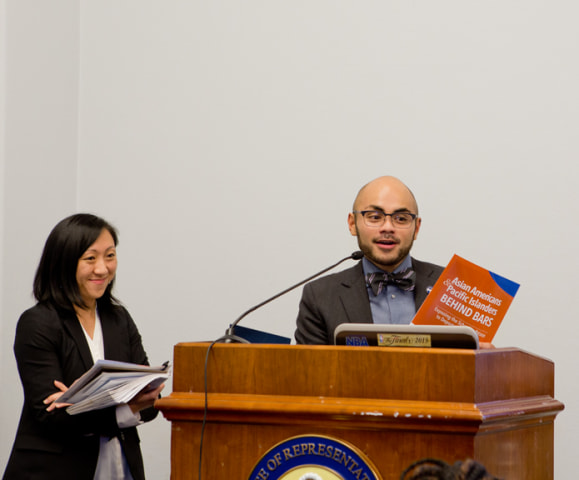GOSO shares thoughtful and relevant articles on our social media channels every day. Here’s what our staff has been reading lately.

New Report Discusses Impact of Mass Incarceration on AAPI Community
By Frances Kai-Hwa Wang / Originally published December 8, 2015
Asian American and Pacific Islander leaders from over 50 organizations are calling for restorative criminal justice policies and an end to the school-to-prison-to-deportation pipeline.
Following a convening of stakeholders last June at California’s San Quentin State Prison, the leaders held a congressional briefing last week with Reps.Judy Chu (D-Calif.) and Bobby Scott (D-Va.), where they released a policy report on the impact of mass incarceration on the AAPI community.
“The lack of data and research exemplifies the significance of the release of the ‘AAPIs Behind Bars’ report at the Congressional Hill Briefing,” Gregory A. Cendana, executive director of Asian Pacific American Labor Alliance (APALA), told NBC News. “By raising awareness about the intersections of the school-to-prison-to-deportation pipeline that exists in the AAPI community, we are hopeful that this historic report will serve as a critical resource to insert the AAPI community voice in the larger arena around criminal justice reform. We are ready for the next phase of our work which we are calling ‘AAPIs Beyond Bars.'”
Asian American and Pacific Islander leaders from over 50 organizations are calling for restorative criminal justice policies and an end to the school-to-prison-to-deportation pipeline.
Following a convening of stakeholders last June at California’s San Quentin State Prison, the leaders held a congressional briefing last week with Reps.Judy Chu (D-Calif.) and Bobby Scott (D-Va.), where they released a policy report on the impact of mass incarceration on the AAPI community.
“The lack of data and research exemplifies the significance of the release of the ‘AAPIs Behind Bars’ report at the Congressional Hill Briefing,” Gregory A. Cendana, executive director of Asian Pacific American Labor Alliance (APALA), told NBC News. “By raising awareness about the intersections of the school-to-prison-to-deportation pipeline that exists in the AAPI community, we are hopeful that this historic report will serve as a critical resource to insert the AAPI community voice in the larger arena around criminal justice reform. We are ready for the next phase of our work which we are calling ‘AAPIs Beyond Bars.'”

According to the “AAPIs Behind Bars: Exposing the School to Prison to Deportation Pipeline” report, Asian Americans and Pacific Islanders are officially categorized as “Others” throughout much of the prison system. In 2013, “Others” made up 9 percent of those in the state and federal prison system, with women “Others” making up 11 percent of the female state and federal prison population, the report read.
During the 1990s, the AAPI prison population grew 250 percent, according to the report, which also noted that Asian American juveniles in California were more than twice as likely as white juveniles to be tried as adults for similar crimes.
Southeast Asian American and Pacific Islanders also had disproportionately higher rates of arrest and incarceration, the report found. In 2007, Samoan youth in Oakland, Calif., had the highest arrest rate in the city at 140 arrests per 1,000, according to the report.
Immigration-related detention and deportation has also been increasing, especially for Southeast Asian Americans. Since 1998, at least 15,000 Southeast Asian Americans from Cambodia, Laos, and Vietnam — many of whom came to the United States with refugee status and obtained a green card — have received final orders for deportation, more than 12,000 of whichwere based on old criminal records rather than current offenses, according to the report.
Recommendations of the report include expanding educational programs to address intergenerational trauma and treating drug and mental health problems as public health issues rather than criminal justice ones, among others.
“Not only do we have to work to fix our broken prison system,” Rep. Chu, who is also chair of the Congressional Asian Pacific American Caucus (CAPAC), said at the briefing. “We have to work to fix our immigration system.”
